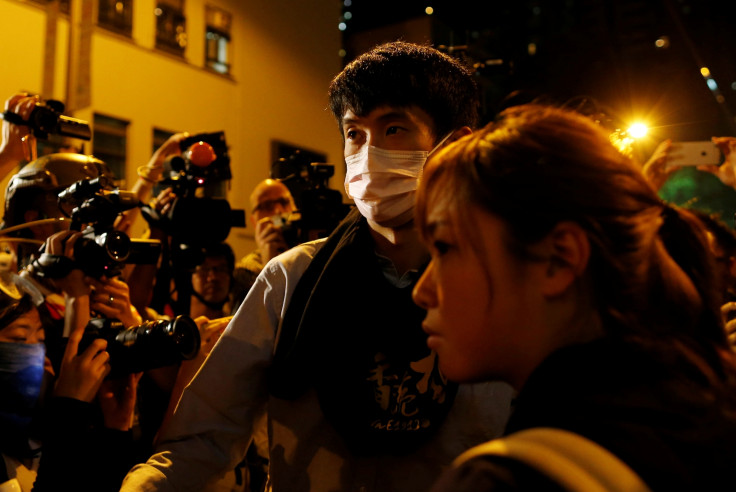US senators challenge China with strong pro-Hong Kong autonomy stance
A new bill would introduce sanctions against officials involved in human rights violations in Hong Kong.
The US Congressional-Executive Commission on China (CECC) has introduced the Hong Kong Human Rights and Democracy Act, accusing Beijing of interfering with Hong Kong's autonomy and freedom.
The announcement came following a meeting between the CECC chairs, US senators Marco Rubio and Tom Cotton and one of the most prominent Hong Kong pro-democracy activists, Joshua Wong. Rubio accused China of undermining the 'one country, two system' principle that guarantees limited autonomy to Hong Kong after it was handed over to China by the UK in 1997.
"China's assault on democratic institutions and human rights is of central importance to the people of Hong Kong and to its status as a free market, economic powerhouse and hub for international trade and investment," said Rubio.
The US senator mentioned several episodes highlighting China's continuous interference in the internal affairs of the special administrative region, such as the suspected abduction of five Hong Kong booksellers, the required loyalty oaths in the lead-up to the September Legislative Council elections, and Beijing's unprecedented intervention in Hong Kong's legal system to block two democratically elected politicians from assuming office.
The bill would require the President and the Secretary of State to hold Chinese officials accountable for the democratic conditions of Hong Kong. The measures include deny entry to the US and freezing US-based assets of officials involved in the "surveillance, abduction, detention, or forced confessions of certain booksellers and journalists in Hong Kong.
One of the Hong Kong booksellers who went missing after selling publications critical of the Chinese leadership suddenly appeared on Chinese state TV in January, tearfully confessing to fleeing justice after killing a student in a hit-and-run incident. The Swedish national Gui Minhai's mysterious disappearance had supporters fearing they had been kidnapped by Chinese authorities after selling publications banned on the Chinese mainland.
Chinese officials rebuffed US' concerns, saying that foreign governments have no right to interfere in what China regards as internal affairs. "It is gravely wrong and dangerous to claim that Hong Kong is not part of China, and challenge the country's sovereignty and constitution by advocating 'self-determination' and independence," said a spokesperson for the foreign ministry, reported in the South China Morning Post.

One of the lawmakers who had been barred from office, Yau Wai-Ching, has also reached out to a foreign government, writing a letter to British Foreign Secretary Boris Johnson on 15 November. In the letter, she argued that Beijing's interpretation of the Hong Kong Basic Law breached the Sino-British Joint Declaration signed in 1997, asking the UK to "recover the status of Hong Kong".
The two lawmakers have appealed the High Court, which ruled along Beijing's interpretation to disqualify them from office. The ruling has sparked several large-scale protests in Hong Kong, both supporting and rejecting Beijing's involvement.
The UK Foreign Office has not yet received the letter, but a spokeswoman told IBTimes UK: "We are concerned by recent developments in the Legislative Council. While we recognise the National People's Congress Standing Committee's authority to interpret the Basic Law, this is a matter for the Hong Kong courts to resolve.
"We urge the Chinese and Hong Kong governments, and all elected politicians in Hong Kong to refrain from any actions that fuel concerns or undermine confidence in the 'one country, two systems' principle. Hong Kong's prosperity and stability depends on its successful implementation, as provided for by the Joint Declaration and Basic Law."
© Copyright IBTimes 2024. All rights reserved.






